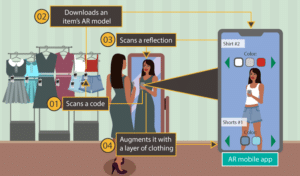Table of Contents
Now, with the research toolbox increasingly inclusive of today’s technologically augmented tools, the stakes are even higher. Educational research has digitised more, with an increase in the use of computing technologies such as artificial intelligence (AI) and machine learning to analyse education data and develop educational products. These technologies promise new opportunities to enhance learning and bring new ethical questions about privacy, consent and bias into the limelight. Responding to these challenges is imperative. The research process involves numerous steps that require careful consideration. It isn’t just to meet standard requirements but to ensure that the technologies we develop genuinely benefit educators and learners, avoiding any negative impacts that could undermine educational outcomes.
Understanding the Ethical Landscape in Educational AI
While AI might appear promising for the future of education, it could also undermine its ethical framework. The following section will explore this tension between the power of technological progress and the moral dilemmas raised by using artificial intelligence for educational purposes.
The Rise of AI in Education
The educational landscape is gradually being transformed by the powerful combination of AI and computing technologies: personal learning assistants and systems, intelligent tutoring, automated assessment and grading, adaptive learning, predictive analytics, and more. Many of these new technologies have profoundly changed teaching methodologies: they redefine the relationship between learning materials and the learner by adjusting and adapting content to fit the learner in a profoundly personal manner. These approaches can prove hugely beneficial, encouraging a much more dynamic and engaging learning experience.
While technologies are developing in education, academic writing services are also growing in popularity. You can pay for research papers to a reliable service provider, Top Essay Writing, and excel in your studies. These services offer a way to manage demanding workloads and achieve academic success.
Personalised Learning Systems
Personalised learning systems are engineered to fit individual students’ learning styles and aptitudes. They promise an engaging and practical fit by adapting the learning experience to each individual’s unique needs.
Automated Assessments
Not only does the automated process quickly assess the answers, but learners also have immediate feedback on the result of their effort. While this speeds up the assessment procedure, this extra time frees learning specialists to offer the students greater personal attention through direct instruction, ultimately enriching the instructional experience.
Predictive Analytics
Predictive analytics can forecast student performance by using big data. Before data-driven systems like predictive analytics were available to analyse behaviour, identifying at-risk students relied primarily on classroom observation, often leaving some students unnoticed.
Ethical Considerations
These innovations are also ethically fraught: any use of AI in education entails responsibility over personal data, with significant privacy and security issues to consider. There are also concerns about how AI created using biased data can produce discriminatory education.
The Need for Tailored Ethical Frameworks
The particular nature of education as an activity with special importance in forming today’s children into tomorrow’s adults brings further ethical considerations to the fore. Frameworks for using educational AI applications should be specially adapted to the academic context. It implies appropriate levels of fairness, transparency, and accountability.
Aligning AI with Societal Values
Furthermore, we must adapt these ethical frameworks to fit with broader societal values and overarching goals of education; we can do that only if we embed technological choices in a profound awareness of the concrete educational contexts where AI is invited into work. That will inevitably demand an understanding what implementing these technologies may mean in the long run. Only by acknowledging those two elements can the entrance of AI in education be placed under the normative corporate order that respects and strengthens the educational process rather than putting it at risk.
Principles for Ethical AI in Education
The ethics of using AI in educational settings centres around adhering to transparency, accountability and inclusivity principles. Transparency of AI processes and decisions is critical so teachers and students can understand how AI makes its decisions. Accountability systems that hold AI providers to account, especially when they fail, are also essential. And finally, a genuinely inclusive AI creates access for all students by providing solutions that work for diverse learners.
Institutions such as UNESCO and the OECD have helped establish global norms around these principles. These guides must now become the foundation for ethical AI deployment in education, particularly in an age of increasing educational privacy.
Here is a table that succinctly captures these ethical principles and their implications:
| Ethical Principle | Description | Impact on Education |
|---|---|---|
| Transparency | AI systems’ functions and decisions must be transparent and open. | It enables understanding and trust among users. |
| Accountability | Mechanisms to hold AI providers responsible for their systems. | It ensures reliability and rectification of issues. |
| Inclusivity | AI tools must accommodate the diverse needs of all students. | It promotes equity and equal access to educational resources. |
| Data Protection | Strong focus on securing personal and sensitive information. | It protects the privacy and personal rights of students. |
This framework informs how AI systems are conceptualised, developed and implemented in education so that they don’t erode human dignity but rather reinforce it and foster enriching educational experiences for teachers, students and everyone involved.
Addressing Societal and Human Dignity Concerns
From privacy and freedom to the security of the person, human dignity can, in many ways, be threatened by an overly intrusive use of computing technologies in education. Thus, respect for these elements must be at the core of educational technologies to ensure that data collection and analysis do not infringe upon persons’ rights or expose them to potential risks. Human oversight ensures critical decision-making retains human judgment, ensuring that AI adoption supports and complements, rather than replaces, existing accountable human expertise. This approach aligns with our values, standards, and global human rights. When exploring education research paper topics, you should keep ethical implications in mind. It’ll ensure the research contributes positively to the field.
Case Studies and Practical Applications
On the ground, ethical AI principles have slowly incubated within the work of educational institutions, with some positive results and some negative ones. Here are four takeaways in the field:
- Personalised Learning: Some schools use AI to customise educational content to meet each student’s unique needs.
- Data Transparency: These institutions often share data usage policies transparently with parents and students.
- Fairness Obstacles: Indeed, even with these efforts, it remains challenging to ensure that these technologies are not used inequitably or don’t perpetuate underlying biases.
- Need for Continual Review: Real-world cases highlight how AI tools must continually be monitored and adjusted to maintain ethical integrity.
These points reinforce the difficulty of applying ethically modern AI in education and clarify that we must continue to be vigilant to ensure that such technologies serve all students well.
Moving Forward with Responsible Research
Given the constant advancement of technology, these ethical concerns around AI in education will need to be revisited regularly. Educators, technologists, and policymakers alike need to continue engaging in an ongoing dialogue to refine these technologies and genuinely establish themselves as powerful learning tools that cater to the best interests of all stakeholders in the education community. Promoting good research and development helps balance innovation and ethical compliance. It ensures a positive future where educational technologies continue to be helpful but are also fair and impartially applied.









